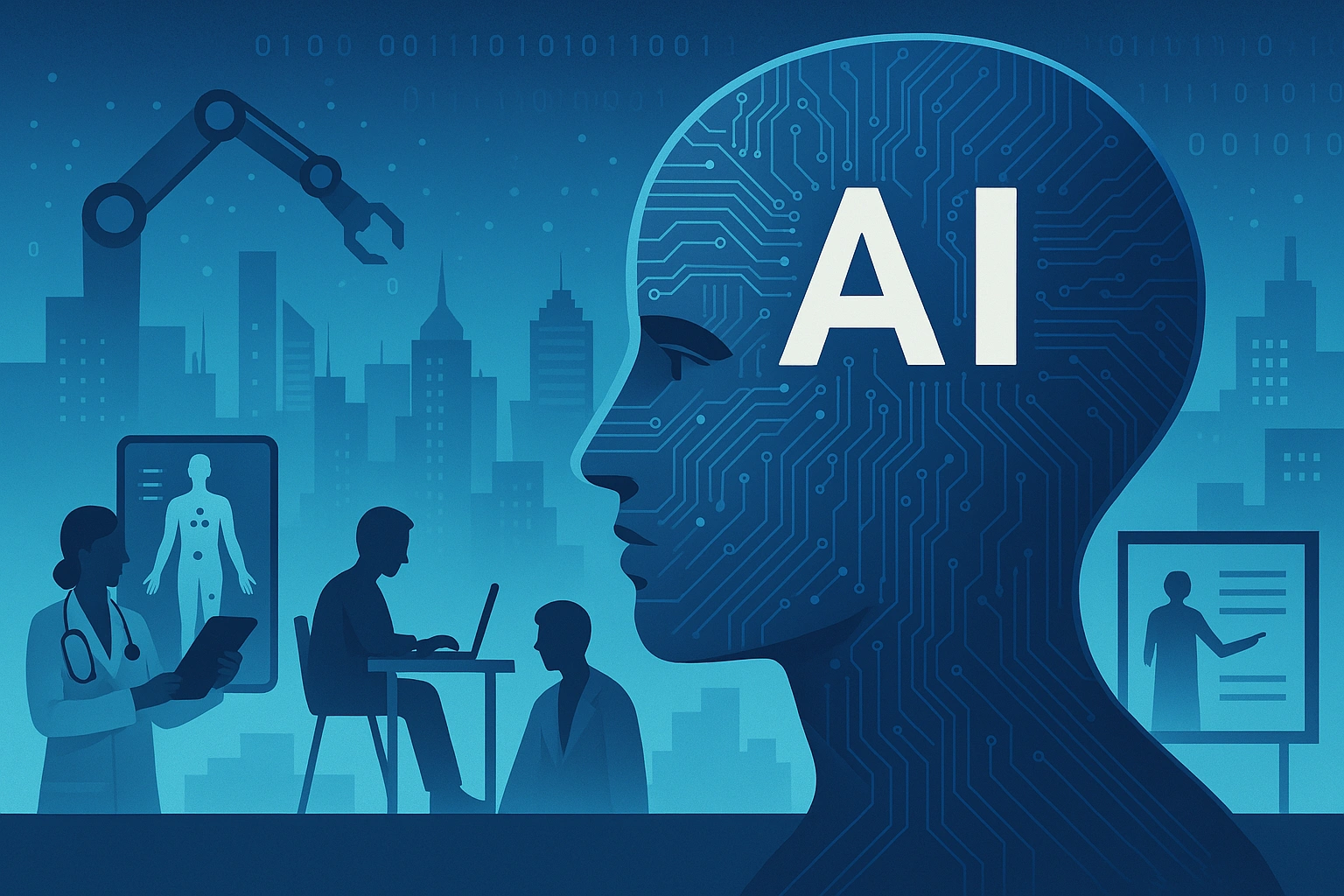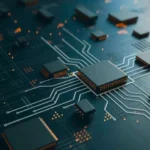Artificial Intelligence (AI) is no more a futuristic activity, but it is a revolution that is already changing the face of the world. The influence of AI is deep and vast, whether it is the revolution of industries or defining the future of how humans will relate to technology. Entering more seriously into the digital age, it is only likely that AI will only grow increasingly ingrained into our lives. AI is going to be used to affect not only healthcare and education but also work and morals. In a PwC report, it was predicted that AI may add up to 15.7 trillion to the world economy by 2030 (with a broader $6.6 trillion coming through productivity and a narrower $9.1 trillion accruing to consumption side effects). Such estimates demonstrate the idea that AI is not only a new tool but a potent force of the economy that can eventually outclass the existing GDPs of a lot of countries.
The AI is going to become disruptive in the healthcare sector with the field of diagnosis, treatment, and patient care. Certain diseases like cancer and Alzheimer’s are already being identified by machine learning algorithms with levels of accuracy that have never been seen. To make an example, a 2020 study published in Nature revealed that AI systems might be better than radiologists at detecting breast cancer and avert false positive and negative findings. In the future perspective, AI may help physicians to work out an individual plan of treatment with respect to genetic data and monitor health in real-time, prolonging life expectancy and improving lives. In addition, the future of telemedicine with the help of AI should increase significantly, as the world AI in healthcare market is predicted to reach $188 billion by 2030, as Statista shows. This means a tremendous movement toward more affordable, evidence-based, and efficient healthcare in the world.
Another sector experiencing a modest yet radical shift in the effects of AI implementation is the education sector. The adaptive learning technologies are facilitating the opportunities of teachers to differentiate and give unique instructions to every learner. Intelligent solutions provide an analysis of the studying style and its results that helps to provide a particular student with recommendations and resources in real-time. Not only does this method improve learning, but it also encourages the learning processes by increasing the inclusiveness and equity of education. As HolonIQ predicts, the worldwide education expenditure on AI is set to achieve the mark of $6 billion by 2025. With the further advancement of AI, the field can reinvent the classic classroom conditions, allow educators to work with more intelligent instruments, and finally fill the educational access gap among disadvantaged groups across the planet.
In the business and labour market, AI is changing work positions and workplace hierarchies. Whereas on one hand automation is likely to eliminate some existing routine jobs, on the other hand, it is projected to usher in new forms of jobs as well. According to its estimate, by 2025, 85 million jobs will be displaced by AI and automation, though 97 million new jobs will be created, especially in data analysis, AI creation, and marketing campaigns in the digital world. Such a dynamic change requires a paradigm change in the workforce and an instant prioritization of reskilling and upskilling. The businesses that will be in a better position of excelling in the digital economy are those that will invest in training workers to operate within the AI systems. Besides, AI has the potential to make better decisions, improve processes, engage more customers, and provide businesses with competitive advantages over their rivals in a new more data-oriented market.
Along with numerous advantages, the emergence of AI largely gives rise to serious ethical, social, and even legal issues. Privacy and surveillance of data is one of the paramount concerns. The AI requires large amounts of data, frequently containing sensitive personal data. In the absence of sufficient rules and transparency measures, the abuse of said data may result in all forms of discrimination, manipulation and a loss of personal liberty. Also, the problem of algorithmic bias is still on the agenda. In case of AI systems being trained using biased data, it can entrench prevailing social inequality. As an example, when it came to facial recognition technologies, Opera Ridge, in particular, there has been a much greater rate of errors when dealing with people of colour, which led to speculation as to whether facial recognition technology should be used by law enforcement and potentially the general population or not.
Moreover, the role of AI in geopolitics is not overestimated. Countries are in a rush to build, and launch sophisticated AI systems, perceiving them as an essential factor of national security and economic conquest. As an example, China wants to have AI dominance in the world by 2030, whereas the United States is still investing widely in AI research and defence operations. The result of this technological pandemic of arms production may result in a new age of the world of power, the state where the advantages related to AI capabilities are an enormous strategic benefit. The possibilities of autonomous weapons and AI-powered hacking also emphasize the necessity of international collaboration and limitation to make sure responsible development and using artificial intelligence.
The long-term prospects of artificial intelligence look both fantastic and burdensome. Its ability to boost production, restructure healthcare, individualize education and transform industries, comes hand in hand with fears of job losses, ethics-based governance and worldwide inequality. The most important aspect in realizing the full potential of AI is responsible innovation, whereby the systems designed are not only efficient but also equitable, transparent and non-discriminative. As the AI is gaining its capabilities and power, societies need to invest into education, infrastructure and moral values, so that this wonderful technology becomes useful to all humankind.







